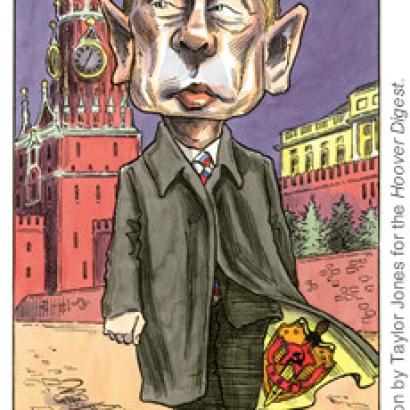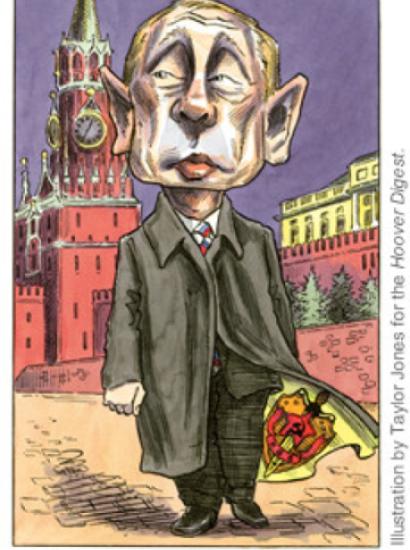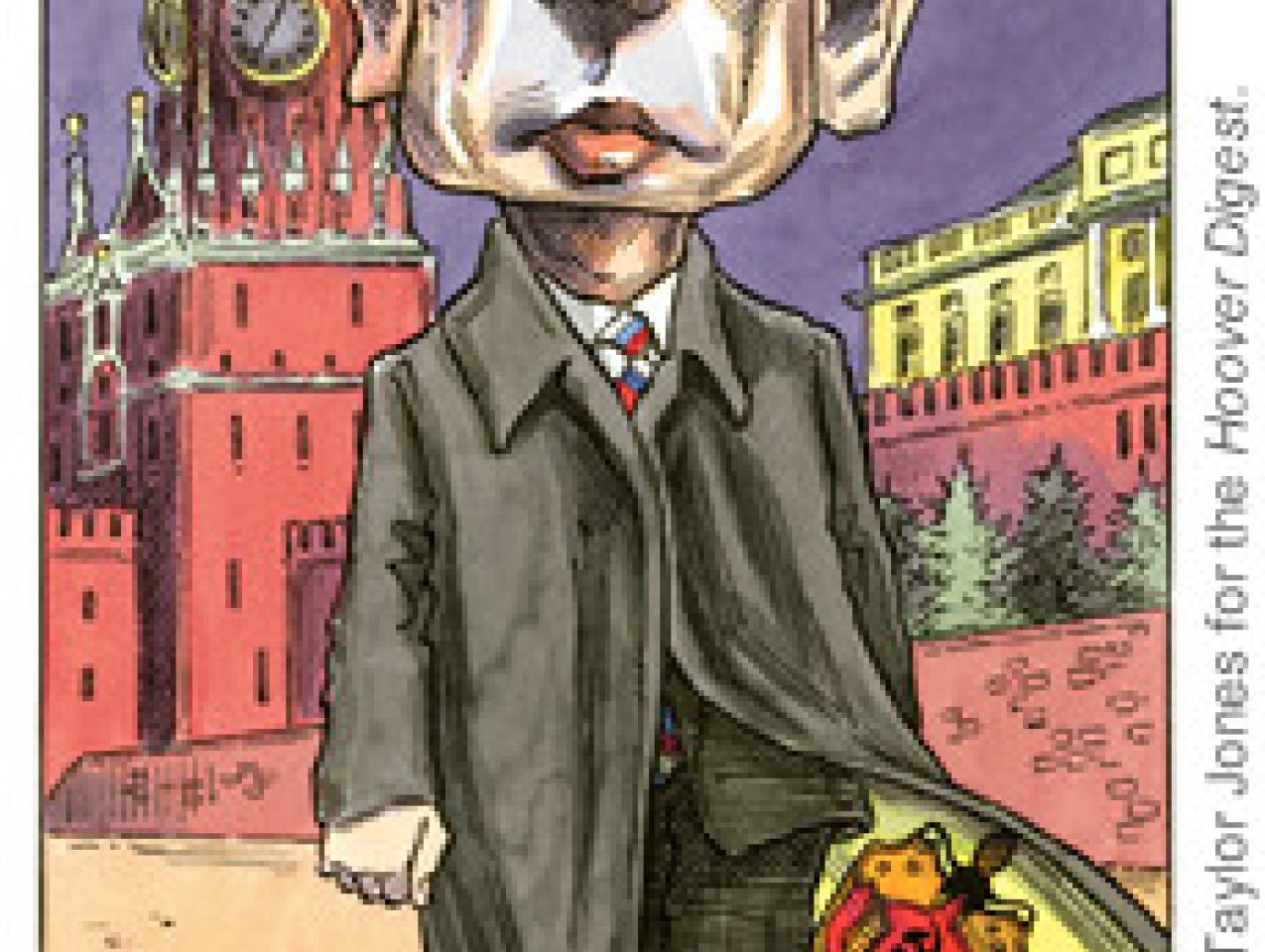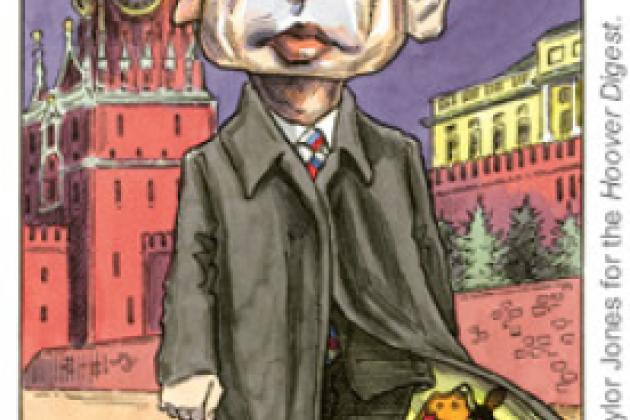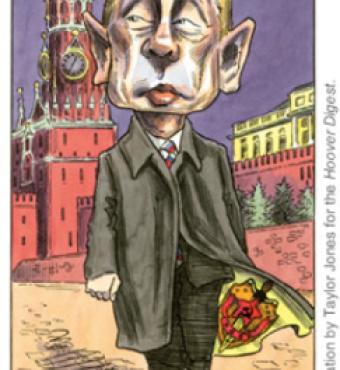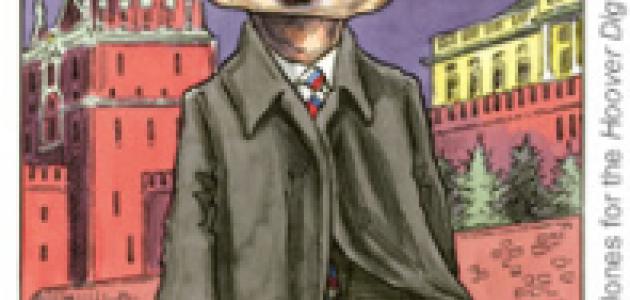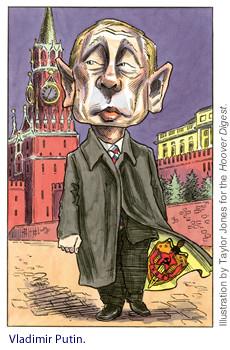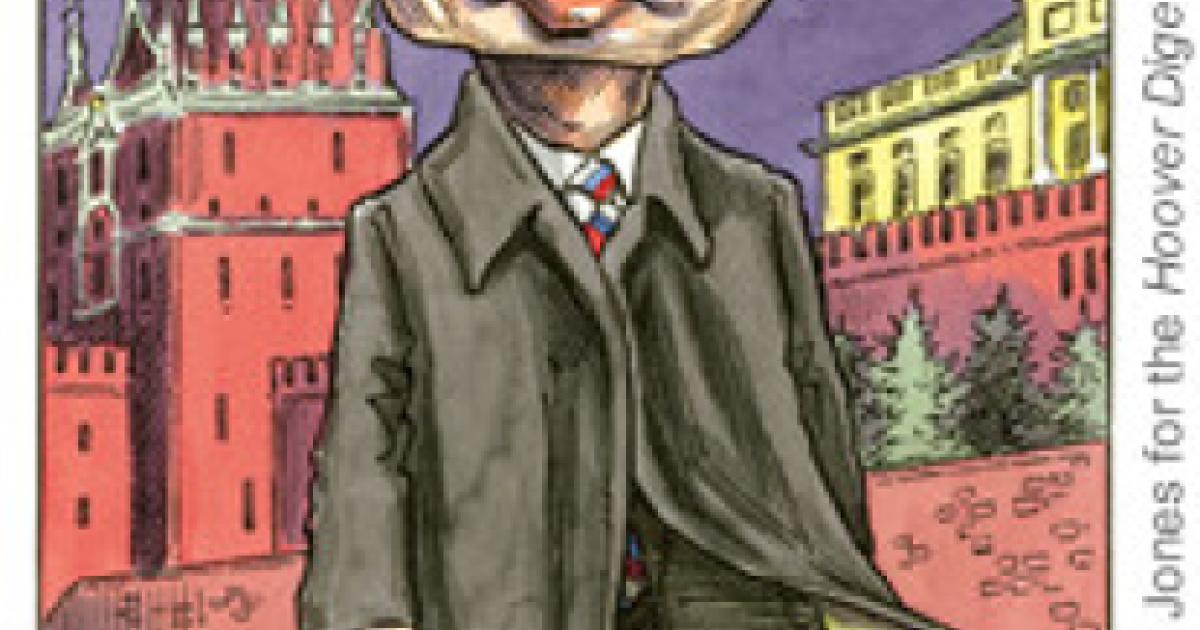- International Affairs
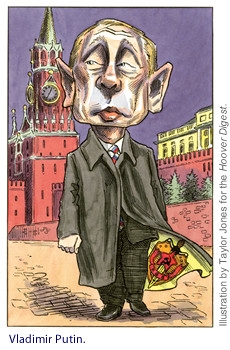
In the barrage of comment on the arrest of Yukos oil tycoon Mikhail Khodorkovsky this past November, much attention was paid to Khodorkovsky’s political activities and to Russian president Vladimir Putin’s brand of crony capitalism—but the essence of the scandal goes deeper than that. The imprisonment of the richest man in Russia has to do with more than the parliamentary elections that were held in December and the greed of second-tier KGB officers who think they got less than their share of the spoils in the 1990s. Rather, the move to eliminate Khodorkovsky as a political and economic force is part of an unfolding strategic plan, whose goal is a regime neither accountable to the people nor constrained by autonomous political actors. The author of this blueprint for dictatorship is Putin. And to date, it is succeeding.
One reason it is succeeding is that few in the West can see it. Each stage of the plan’s realization has been clouded with controversy, subject to conflicting interpretations, its actors decked in gray rather than black and white. As a result, observers have resisted connecting the dots of a systematic plan to roll back democracy. Many—including me—hoped for better. Gorbachev failed. Yeltsin disappointed. Surely the Russian people and their friends in the West wouldn’t be wrong a third time? Other observers had an economic or geostrategic interest in casting Putin as above the fray. Today, however, it is naive to ignore the man’s strategic vision or fail to marvel at the speed of its accomplishment.
The project began in Chechnya. For those (the derzhavniki) who aspire to make the Russian state feared, respected, and “great” again, including former KGB officer Putin, the anarchy in Chechnya after the withdrawal of Russian troops in 1996 was an embarrassment and a testament to Russia’s weakness. When the fanatic Chechen commander Shamil Basayev and his Saudi sidekick, Khattab, moved into neighboring Dagestan in 1999 to liberate the Muslim people of the Caucasus, they gave Putin the perfect pretext for sending Russian troops back into Chechnya.
But the attempt to reassert Russian control over the breakaway province would have happened under Putin even without that pretext. The ensuing rape, pillage, murder, and destruction of civilian property by Russian soldiers reveal how little value Putin assigns to the protection of individual human rights. Unapologetic, he worries about the state, not the individual.
Next came the destruction of the Russian oligarch Boris Berezovsky, the man perhaps most responsible for bringing Putin to power, first as prime minister in 1999 and then as president in 2000. It was Berezovsky who masterminded the transition from Yeltsin to Putin, who built from scratch Putin’s party, United Russia, and who wielded his control of Russian national television to neutralize Putin’s only potential rival in the 2000 presidential election, former prime minister Yevgeny Primakov. Berezovsky is no democrat. But he was an independent political force and so had to be eliminated. Today Berezovsky lives in London.
Up next was television. When Putin came to power, only three networks had the national reach to really count in politics—ORT, RTR, and NTV. By running Berezovsky out of town, Putin effectively acquired control of ORT, the channel with the biggest national audience. RTR is still 100 percent owned by the state, so it was even easier to tame. Controlling the third channel, NTV, proved more difficult since it was in private hands. But the anarchy of the early 1990s gave Putin and his lieutenants a treasure trove of compromising material on anyone who did business back then. In 2000, federal authorities filed charges against NTV’s principal owner, Vladimir Gusinsky, who eventually lost his property and now shuttles between Spain, the United States, and Israel, never Russia. NTV’s original team of journalists tried to make a go of it at two other stations but eventually failed. Today, the Kremlin has de facto control over all national television in Russia.
Next came the regional barons. In the 1990s, governors of oblasts (administrative units roughly comparable to states) and presidents of republics acquired significant political autonomy. To reassert Moscow’s dominance, Putin created seven new supra-regional executive authorities whose mandate is to enforce his policies at the regional level. He then emasculated the Federal Council, Russia’s closest approximation to the U.S. Senate, by removing governors and heads of regional legislatures from its membership. Under the new system, Putin effectively appoints most senators, making the Federal Council a rubber stamp for Kremlin policies. To dispose of really troublesome regional leaders—those slow to submit to Putin’s authority—federal authorities have rigged elections. Disqualification of candidates from the ballot on technicalities has been their means of choice—for example, in Kursk Oblast, Ingushetia, and Chechnya. Most recently, Putin’s aides have resurrected “party” politics in the regions by inviting/coercing regional executives to join Putin’s party, United Russia. This new party, built in no small measure on the remnants of the old Communist Party of the Soviet Union, is expected to provide the Kremlin with another institutional mechanism for controlling regional politics.
So after the oligarchs had been tamed, the regional leaders reined in, and television seized, who was left to defy the president? Mikhail Khodorkovsky. In contrast to Berezovsky, Gusinsky, and some of the rebellious regional bosses, Khodorkovsky seemed an unlikely challenger to the Kremlin’s power. For the first years of Putin’s reign, he did as he was told. When Putin warned the oligarchs to stay out of television, Khodorkovsky complied. When the Kremlin asked him to provide money to Grigory Yavlinsky’s party, Yabloko (as a reward for Yavlinsky’s good behavior in the hostage crisis in downtown Moscow last year), the billionaire did as he was told.
But somewhere along the way, Khodorkovsky began to show signs of independent thinking and political ambition. Perhaps the final provocation was his suggestion in the spring of 2003 that Russia needed a parliamentary democracy rather than a presidential republic. Perhaps it was his pledge to Putin that he would make sure the presidential transition in 2008 (at the end of Putin’s second term) went smoothly. Such statements were in direct defiance of Putin’s plan to create a political system that he alone controlled and that he alone would decide how to change. Khodorkovsky had to go.
When considered in isolation, each step in Putin’s plan can be interpreted as something other than democratic backsliding. The government in Chechnya did not work; terrorists were and are active there. Berezovsky and Gusinsky have many skeletons in their closets. Some of the regional barons Putin has reined in were behaving like tyrants in their fiefdoms. Khodorkovsky is no Sakharov. And, more generally, everyone believes that Russia needs a more effective state if its market economy and democracy are to develop further.
But when taken together, these events are clearly linked: All tend toward weakening or eliminating independent sources of power. Khodorkovsky’s arrest was not only a triumph of the guys with the guns (the siloviki) over the guys with the money (“the family”). Nor was it only an incident spurred by personal rivalry and private greed. Rather, it was the execution of the latest phase in a grand strategy for regime change in Russia—autocratic regime change. And the master strategist is not Igor Sechin or Viktor Ivanov, both longtime KGB associates of the president now working for him in the Kremlin. It is Putin himself.
The group of people in Russia who understand most clearly how the dots connect are the same people who fought the last dictatorship in Russia. In Moscow in November, at a gathering of human rights activists—some of whom had logged years in the Soviet camps—delegates passed resolutions denouncing the war in Chechnya and the arrest of Mikhail Khodorkovsky, spelling out the relationship between these two events. Although they lack the power to stop Putin’s plan, they have the clarity of mind and the courage of their convictions to speak the truth about the rise of dictatorship in Russia.
Shouldn’t we as well? In his meeting with President Putin at Camp David last October, President Bush attributed to Putin a vision for his country that the Russian human rights activists would not recognize. Bush said, “I respect President Putin’s vision for Russia: a country at peace within its borders, with its neighbors, and with the world, a country in which democracy and freedom and rule of law thrive.” The evidence for this vision does not exist. The evidence for the opposite vision is overwhelming.
Even if there is little Bush can do to stop the erosion of democracy inside Russia, he should at least join Russia’s human rights heroes in speaking the truth about Putin’s actions. Anything less would make a travesty of Bush’s great theme—articulated again, most eloquently, in a major address in November—that “the advance of freedom . . . is the calling of our country.”








